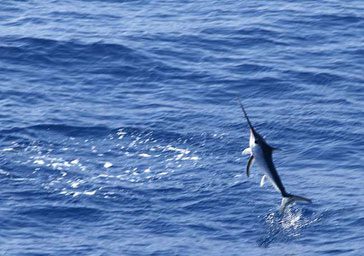Overview

Because the species managed by ICCAT are highly migratory, their management depends on cooperation among the countries that capture them. For example, management measures applied in just one part of a highly migratory species’ range are likely to be of limited use, while overfishing in one location could have detrimental effects on stocks shared among numerous countries. Currently, there are 51 contracting parties to ICCAT, which together decide how ICCAT fisheries are regulated.
In 2016 Oceana attended the 20th Special Meeting of ICCAT Commission in Vilamoura (Portugal). In our role as an observer, we called for the precautionary management of bluefin tuna and tuna-like species and sharks and for proper implementation and compliance with ICCAT management rules.
Oceana successfully pushed for an immediate stock recovery plan for Mediterranean swordfish, as current stock levels are a critical level: only 30% left in Mediterranean waters! Three decades of overfishing and a minimum catch size well below the recommended size by scientists mean that swordfish are being caught too young (juvenile, in fishing terms) and can not reproduce.
Read more here on Mediterranean swordfish.
Learn more:
- The International Commission for the Conservation of Atlantic Tunas
- Give swordfish a future. Halting overfishing through a catch limit plan
- If not now, then when? Overdue shark management in ICCAT



